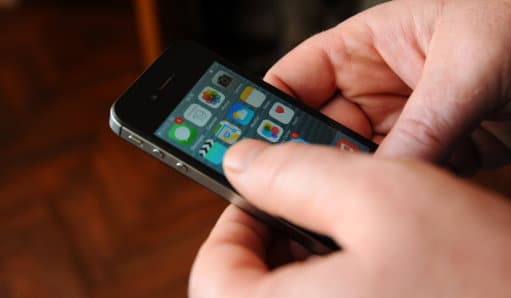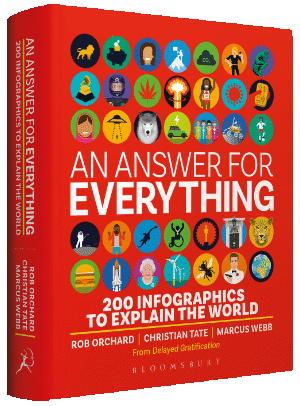The secret life of our mobile phones

Lauren Hurley / PA Wire/Press Association Images
Our phones travel with us everywhere we go. And they send out data everywhere we go, although often we have no idea what the data consists of or who it’s going to.
Two years ago, Geoff White of Channel 4 News worked on an award-winning series of reports called Data Baby, which saw him create a fake online identity and track the information that flows to and from a smartphone. The results were startling – in one 24-hour period the phone sent out more than 144,000 packets of information to over 300 servers around the world. Next week, White will team up with Glenn Wilkinson of security firm Sense Post to present a show in which audience members’ phones are hacked – with their permission, of course – to show what our technology gets up to behind our backs.
We spoke to White to find out more…
What concerns you about how our phones send out data?
The apps we use on smartphones such as maps are massively convenient, but you’re getting something for free and there’s no such thing as a free lunch. You’re expected to render information about yourself – where you go, what you do, what you look at online. The product is free because its producer gets something back through your data. I don’t mind that in principle, but what worries me is that at the moment we don’t know exactly what bits of data we’re giving away and how much we’re giving out, and also we don’t know how the companies that get our data make money off it.
In your Channel 4 News investigation you discovered that mobile phones are constantly sending data to servers, including advertising agencies, even when they’re idle…
That was one of the moments when the penny dropped. The tech industry revolves around data – evaluations are based on data, salaries are based on data – and while laptops are a problem because the trail goes cold when you turn them off, apps are with you the entire time unless you make the effort to switch them off, and some apps keep running even after you switch them off. You might have data going to Facebook and think “that’s OK, I signed up to Facebook” but it’s all the other bits going to South Africa, Ukraine, Japan, server farms in Utah you’ve never heard of, which makes you say “hang on a minute, who’s getting my data?”
App developers often say that they use your data to improve their product. Is there any truth in this?
You can put this to the test. Go to Google but use the Tor browser, which anonymises your traffic, and use a VPN to make it look like you’re accessing Google from a different country. Switch off your cookies, install some different fonts… do everything to fool Google and then search for something. The results are rubbish. So yes, there’s truth in the companies’ argument that they’re using your data to make their product more relevant to you but I still come back to the fact that you don’t know how much data you’re giving them and you don’t know how much they’re sharing with other companies.
In your show you hack into the audience’s phones. How easy is it to do this?
Much of it is astoundingly easy to do. I’m a journalist, not a techie, but I can do most of the technical stuff in the show. Glenn is able to do the more complex hacking and bring everything together. He can plot on a map all the wifi hotspots your phone has tried to find so you can track where a person has been. You can trick a phone into connecting to our network and you can plot on a map where it goes and which companies it sends data to. In the show we hack people’s phones and show them the data, and what’s brilliant about this is when you hear about hacking on TV it’s “poor them” but this is your data appearing on the screen, and so it’s your problem. It’s a much smaller audience than TV but the impact on each person is much bigger because you can’t leave the show still thinking that it’s somebody else’s problem.
What should we do to limit the amount we share?
Turn off wifi when you’re not using it. The longer it’s switched on the more information you’re giving out. Also consider turning mobile data off so you’re not sending out data all the time. Audit your apps. If you’re not using apps, uninstall them. Switch them off when you’re not using them. And just think about the ramifications of what happens when you put your data out there. Never give away anything you’re not prepared to lose.
The internet was meant to deliver a democratic, egalitarian future. Is the dream over?
No, it’s not, it really isn’t. I’m aware I might come across as a curmudgeon luddite but I’m really not. Tech offers us so much and it’s done so much for connecting people, breaking barriers and upsetting tradition. It’s evolving so quickly and efficiently partly because payment is a barrier to growth – and I have lots of respect for the companies giving it a go. There’s an incredibly vibrant economy building up around this, but I worry that it’s built upon something that is ours – our data. What’s fuelling this boom in the industry belongs to us. I’d just like to know more about how our data is being used.
Tickets for The Secret Life of Your Mobile Phone, which takes place on Wednesday 28th October at Islington Metal Works, are available here.
Slow Journalism in your inbox, plus infographics, offers and more: sign up for the free DG newsletter. Sign me up
Thanks for signing up.





